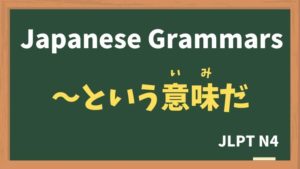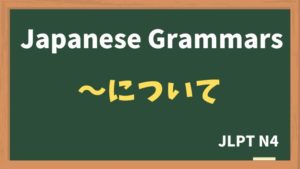
Explanation:〜ようと思っている
fa-check-circleMeaning
Used to express an intention, plan, or resolve to do something in the future. It roughly translates to "I’m thinking of doing ~" or "I plan to do ~" in English. This expression is commonly used when someone has decided on a course of action but has not yet carried it out, and it often suggests that the speaker is still considering or preparing for it.
fa-check-circleForm
V(volitional form) + とおもっている
fa-check-circlePoints
- Expressing Intention or Plan: "〜ようと思っている" conveys a speaker's intention or plan to take action in the future.
- Present Progressive Aspect: The phrase "思っている" gives the expression a slightly continuous feel, suggesting that this decision or intention has been thought about for some time or is in progress.
- Politeness and Softness: This expression is polite and relatively soft, as it implies a consideration rather than a firm decision.
fa-check-circleJLPT Level
N4
Sample sentenes
大学を 卒ぎょうしたら 国へ 帰ろうと 思っています。
I’m going back to my country after I graduate college.
将来 エンジニアに なろうと 思っています。
I have decided to become an engineer in the future.
来年は JLPT N1を 受けようと 思っています。
I am going to take the JLPT N1 next year.
来週から タバコを やめようと 思っています。
I have decided to stop smoking starting next week.
30さいに なるまでに 結婚しようと 思っています。
I have decided to get married by time I reach 30.
国へ 帰る 前に 一度 メイドカフェに 行こうと 思っています。
I am going to go to a maid cafe at least once before I go back to my country.
Vocabulary
| Japanese | English |
| しょうらい | future |
| うける | to take |
| いちど | once |
| メイドカフェ | cafe with waitresses dressed in cute maid costumes |






